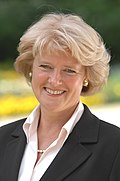January 2023 Autuzian legislative election: Difference between revisions
No edit summary |
No edit summary |
||
| Line 23: | Line 23: | ||
| popular_vote1 = | | popular_vote1 = | ||
| percentage1 = '''31.22%''' | | percentage1 = '''31.22%''' | ||
| swing1 = {{increase}} 1.87 | | swing1 = {{increase}} 1.87% | ||
| image2 = {{CSS image crop|Image =Jean-François_Portarrieu_02.jpg|bSize = 120|cWidth = 120|cHeight = 160|oTop = 0|oLeft = 0}} | | image2 = {{CSS image crop|Image =Jean-François_Portarrieu_02.jpg|bSize = 120|cWidth = 120|cHeight = 160|oTop = 0|oLeft = 0}} | ||
Revision as of 23:05, 6 July 2023
| |||||||||||||||||||||||||||||||||||||||||||||||||||||||||||||||||||||||||||||||||||||||||||||||||||||||||
All 400 seats in the Tchambe 201 seats needed for a majority | |||||||||||||||||||||||||||||||||||||||||||||||||||||||||||||||||||||||||||||||||||||||||||||||||||||||||
|---|---|---|---|---|---|---|---|---|---|---|---|---|---|---|---|---|---|---|---|---|---|---|---|---|---|---|---|---|---|---|---|---|---|---|---|---|---|---|---|---|---|---|---|---|---|---|---|---|---|---|---|---|---|---|---|---|---|---|---|---|---|---|---|---|---|---|---|---|---|---|---|---|---|---|---|---|---|---|---|---|---|---|---|---|---|---|---|---|---|---|---|---|---|---|---|---|---|---|---|---|---|---|---|---|---|
| Opinion polls | |||||||||||||||||||||||||||||||||||||||||||||||||||||||||||||||||||||||||||||||||||||||||||||||||||||||||
| Registered | 9,227,590 | ||||||||||||||||||||||||||||||||||||||||||||||||||||||||||||||||||||||||||||||||||||||||||||||||||||||||
| Turnout | 77.81% ( | ||||||||||||||||||||||||||||||||||||||||||||||||||||||||||||||||||||||||||||||||||||||||||||||||||||||||
| |||||||||||||||||||||||||||||||||||||||||||||||||||||||||||||||||||||||||||||||||||||||||||||||||||||||||
| |||||||||||||||||||||||||||||||||||||||||||||||||||||||||||||||||||||||||||||||||||||||||||||||||||||||||
Legislative elections were held in Auzance on 23 January, 2023 for the Tchambe. The incumbent coalition, who had called the snap election amid legislative gridlock, received a vote of confidence. The councilist left-wing to far-left Labour party received significant gains, as did the right-wing populist National Party, as well as the social-democratic centre-left to left-wing Centre, and the centre-right Solarian democratic Right Unity. The main opposition, the centre-left Liberal-Progressives, suffered their largest defeat since 2012, while the Greens lost most of their gains from the previous cycle, reducing their scale in the resultant coalition government. The pro-Euclean liberal-conservative Eastward Ho! party entered the Tchambe for the first time. Labour Prime Minister Catrene Burnot was therefore re-elected.
The Labour-led left-wing coalition went to the public seeking an increased mandate, however the election was also partially motivated by the increasingly terse relationship between the Communist-Left caucus and the Labour leadership. The appointment of far-left leader Andrêye Villiers in March 2022 saw the second-largest governing party take a turn to the left, and the reshuffle of April 2022 saw the Communist-Left cabinet members mostly coming from the most orthodox-councilist caucus. Months of increasingly fractious negotiations eventually saw a Communist-Left attempt to pass an unapproved law to restrict private enterprise resulting in a public split in the legislature, with the remainder of the coalition voting with the opposition against it. The rejection of this law in early October 2022 resulted in the mass resignation of Communist-Left from the incumbent coalition, and Prime Minister Burnot - rather than returning to negotiations - chose to dissolve the Tchambe through a legislative vote and call a legislative election to renew her mandate.
The electoral campaign saw the Liberal-Progressives campaign on a centrist political platform - rather than a centre-left one, as they had in the last three - and openly co-operate with pro-Euclean Eastward Ho! as well as Right Unity, who collectively sought to target the vulnerability and instability of the coalition government. Premier Houbêrt Louxhî was antipathetic to the Liberal-Progressive campaign, himself on the left of the party - unlike its legislature's leadership - and as a result, both major parties targeted one another's instabilities and factions as a major theme of the campaign. The National Party played on the increasing populism of surrounding countries, and aimed to reach disillusioned social conservatives or moderates who traditionally voted Labour but disapproved of the Burnot government's progressive social reforms, particularly on self-ID and the "legal third gender", as well as public doubts on Auzance's perceived geopolitical closeness to the Euclean Community.
The result of the election saw Labour perform unexpectedly well, after initial fears in the governing coalition that no grouping would gain a mandate or even that the Liberal-Progressives would form government for the first time since their defeat in 2012; Labour got 161 of 400 seats, having gained 23, and thus formed government quickly with the Greens and Centre Party. The National Party saw significant gains for the first time since the 2000s, while the Liberal-Progressives saw their poorest result in a decade, defying expectations of significant gains. Despite remaining in government, the Greens lost over half of their seats, while the Centre Party nearly doubled their vote share, becoming the new second-largest party in the government. The pro-Euclean Eastward Ho! entered parliament for the first time, joining the Liberal-Progressive grouping.








